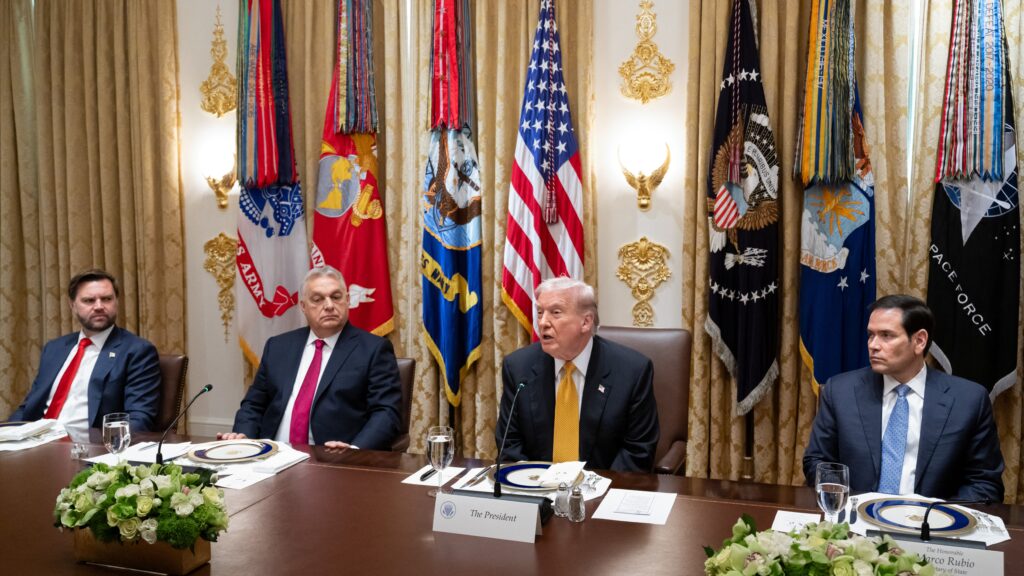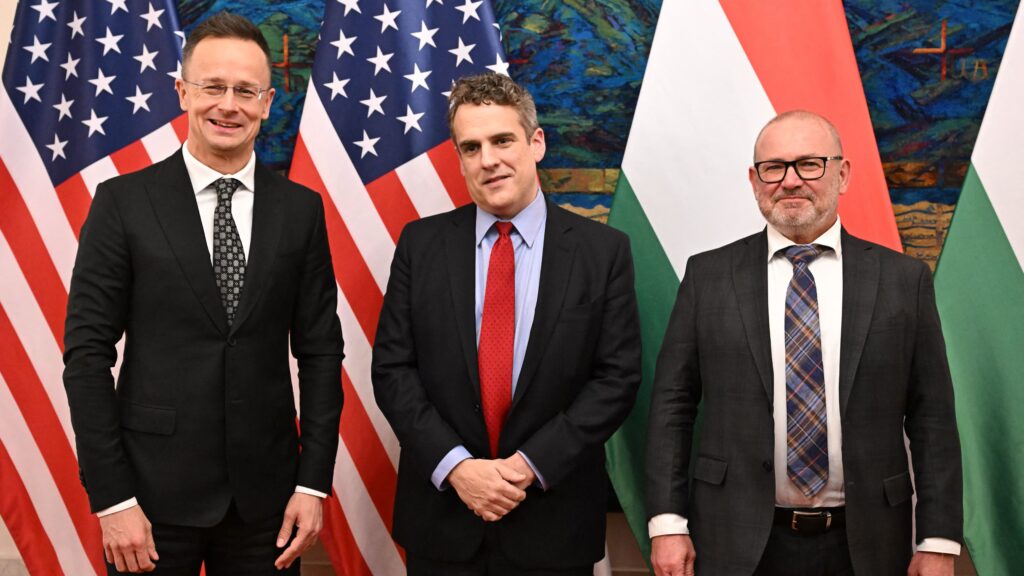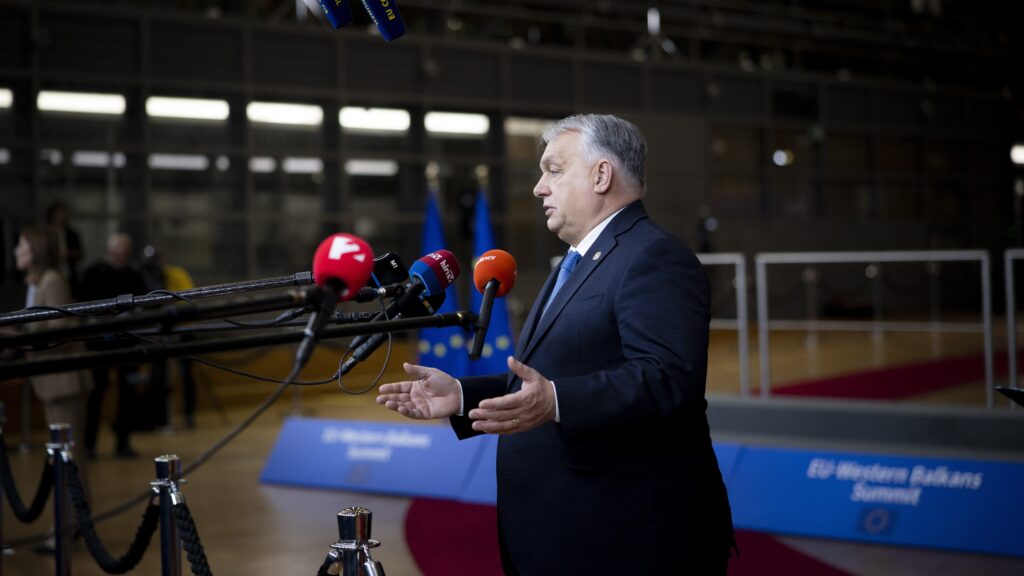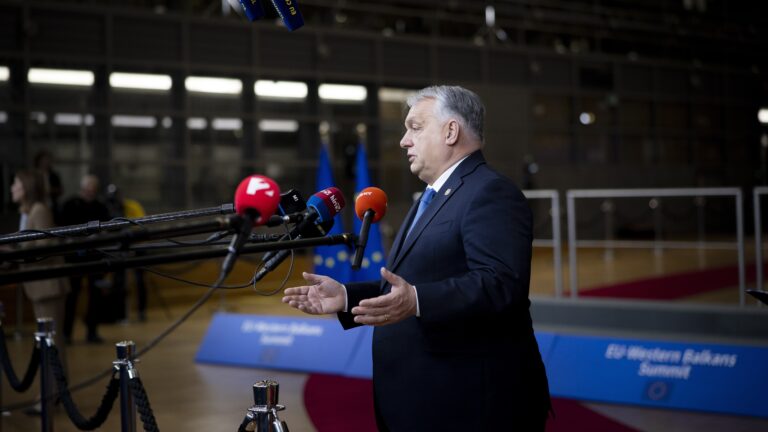The right-wing populist Party for Freedom (Partij voor de Vrijheid, PVV for short) emerged victorious in the Netherlands’ special parliamentary election held on Wednesday, 22 November. PVV got by far the most seats in the House of Representatives, 37 (an impressive 20-seat gain since the last election held just two years ago). The leftist Green-Labour coalition (GL/PvdA) coming in second place got 25 seats out of the total 150 in the chamber.
PVV also got the largest share of the popular vote, 23.5 per cent,
as per the current results with 98 per cent reporting. GL/PvdA received 15.5 per cent, and third-place finishers, the 2021 winner centre-right People’s Party for Freedom and Democracy (VVD) got 15.1 per cent, which amounts to 24 mandates in the House.
The recent snap election was called after the four-party coalition cabinet of incumbent Prime Minister Mark Rutte from the VVD party, who has been serving in the office since 2010, collapsed in July of this year. Immigration, which was at the forefront of this year’s vote as well, was what brought about the fourth Rutte administration’s demise. The four coalition partners failed to agree on any effective immigration reform. This, coupled with the worldwide economic woes of high inflation and high energy prices, eventually led to the cabinet’s resignation and a special election scheduled, only two years into the administration’s four-year term.
Rutte did not run for re-election. His party suffered the political crisis’ consequences, losing ten seats in the House of Representatives.
Gert Wilders’ PVV party now has the chance to form a governing majority coalition. Because of the saturation of political parties, this will not be an easy task for them. Even though the Party for Freedom won by far the most seats, 37, they are still 39 seats short of the 76 needed for a simple majority.
Voice of Europe 🌍 on Twitter: “🇳🇱 #GeertWilders, known as the Dutch Donald Trump and a prominent anti-Islamist, is celebrating the victory of his party PVV in the general elections in the #Netherlands. pic.twitter.com/jHh4bYeUAE / Twitter”
🇳🇱 #GeertWilders, known as the Dutch Donald Trump and a prominent anti-Islamist, is celebrating the victory of his party PVV in the general elections in the #Netherlands. pic.twitter.com/jHh4bYeUAE
The forming of a majority coalition is made even harder by the fact that Wilders has evidently made a lot of enemies with his anti-elite, populist stances, so politicians from other parties are less likely to be willing to work with him. Still, PVV’s massive victory gives them quite a lot of leverage—nominating someone other than Wilders for Prime Minister from the party may be one of the possible working compromise solutions.
PVV is looking to strike a deal with Wilders’ former party, VVD, and the brand-new New Social Contract party, founded only in August of this year. The coalition of these three parties would give them a comfortable 82-seat majority.
‘It’s enough now. The Netherlands can’t take it anymore. We have to think about our own people first now. Borders closed. Zero asylum-seekers,’ this was Wilders’ final pitch to voters in the televised debate held on election night. It seemed to have worked tremendously. Wilders has also flaunted the idea of holding a referendum on the Netherlands leaving the European Union—however, this was never a hard campaign promise, and it’s yet to be seen if he is planning on following through.
Geert Wilders’ Rise to Victory
The 60-year-old Wilders actually started his political career in Mark Rutte’s current party, VVD. He first gained national attention in 2002, when he was appointed as the group’s spokesperson. He has been an avid opponent of mass migration and Islamist extremism since.
In 2004, he decided to break away from the VVD party due to disagreement over starting negotiations about Turkey’s inclusion in the European Union. After spending two years as an independent, he founded his own political party, the aforementioned Party for Freedom, in 2006. Ever since its foundation, the party has been against mass migration and political correctness, and promoted national sovereignty over the European Union’s power.
Needless to say, Wilders has been endlessly vilified in the Western mainstream media. He is habitually described in articles as far-right, which is the tamest of the attacks against his character. Accusations of racism against him are also frequent. He was even criminally indicted for remarks he made about wanting fewer Moroccan immigrants in his country at a 2014 campaign rally. His official charge was ‘inciting hatred and discrimination’ and ‘insulting a racial group’. In 2016, Wilders was convicted on both charges, but he managed to get the former conviction overturned on appeal four years later, in 2020.
In the first general election PVV had participated in 2006, they ended up finishing fifth with about six per cent of the popular vote. By 2017, they got as far as coming in second (although behind Rutte’s VVD by a sizable margin) with 13.1 per cent. In 2021, they finished third, before achieving the ultimate triumph and winning the nationwide election in 2023. Wilders has been leading the party’s ticket in all of the elections PVV has ever taken part in.
Prime Minister Viktor Orbán of Hungary was the first EU head of state or government to congratulate Wilders on his victory
over the phone.
He also shared a congratulatory post on the social media site X.
Orbán Viktor on Twitter: “The winds of change are here! Congratulations to @geertwilderspvv on winning the Dutch elections! pic.twitter.com/yh9LVcuP5J / Twitter”
The winds of change are here! Congratulations to @geertwilderspvv on winning the Dutch elections! pic.twitter.com/yh9LVcuP5J
Their similar stances on immigration and the EU make Wilders and Orbán natural allies. In July 2020, PM Orbán even hosted the PVV party leader in the Carmelite Monastery of Buda. With the loss of an ally within the EU after the Polish elections last month, it seems Hungary’s governing right-wing Fidesz party has gained a new one already. In addition, Wilders has been married to a Hungarian woman named Krisztina Wilders (née Márfai) since 1992.
Related articles:







